There are some filmmakers whom one not only has the pleasure to meet and interview or work with over the years, but connect with on a deeper level of storytelling, understanding, cinematic expression, a kinship if you will. For me personally, writer/director Deon Taylor is one of those very few. Deon and I first met some years ago on the red carpet at Los Angeles Film Festival where his film “Supremacy” was premiering. I had already screened the film before the festival and was bowled over by Deon’s sense of storytelling, character construction, and editing as all of the cinematic elements converged for a narrative telling of a very powerful and frightening true story, but one in which an individual’s inner strength prevails in the most dire of circumstances. That insight and our connection has remained where Deon and his films are concerned, which gives me even more appreciation for his new film – TRAFFIK.
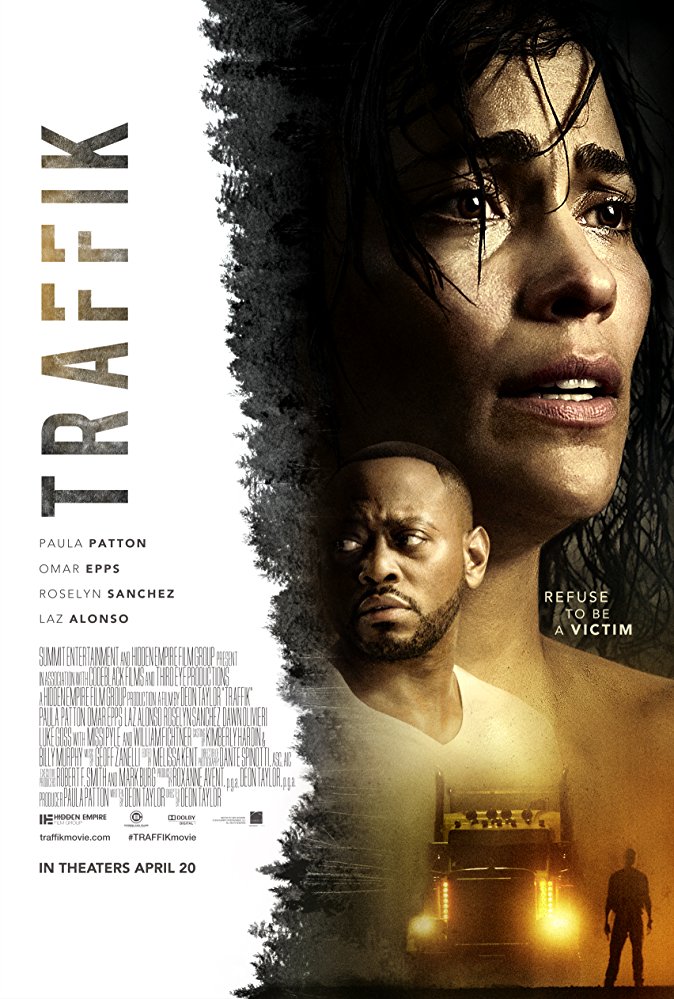
Inspired by this father’s love for his own daughter, TRAFFIK puts the issue of sex trafficking in our own backyards. Shocked to learn that young kids are being trafficked at local malls in suburban and big city USA, Deon dove into researching the issue (a strong suit of his storytelling when factual issues are involved) and knew he had to bring this information into the public eye through film.
Set against a love story and two couples as different as night and day, TRAFFIK transcends the typical drama and morphs into a riveting, edge-of-your-seat film noir thriller. A universal story that will resonate with anyone and everyone as the thriller aspect is front and center with the kidnapping/sex trafficking buttressing and building the tension, TRAFFIK is color blind, gender blind, ethnicity blind, tapping into the human experience and the terror of kidnapping, and ultimately, the horrors of sex trafficking.
I sat down with Deon Taylor for this heartfelt, in-depth, exclusive interview talking TRAFFIK. . .
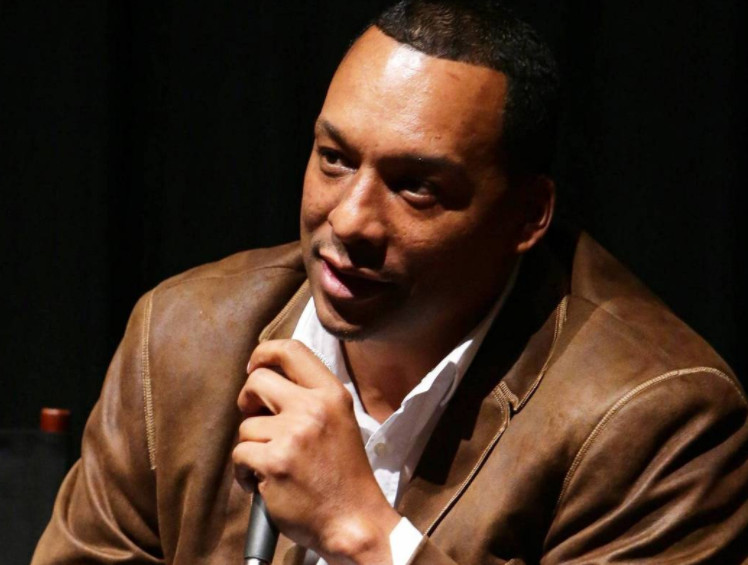
So good to see you again!! How are you, Deon?
I’m fine. This is crazy! This has been very cool today! I remember the first time we met and did our [interview] thing. That was the first time I had ever, as a filmmaker, number one, made a film like that. It was in me. I was just trying to figure out how to get it made. But then you were one of the first people that I gravitated to based on the fact that you gave me insight on what you had seen. Me and you were connected in terms of what you pitched back to me is what I was shooting. As a filmmaker, that’s really important because, some people do this stuff out here, they shoot a movie just to shoot a movie. For me, like I just told this other guy, I said, “People don’t understand when you make a movie independently, that’s it. I’m using money. I’m shooting. There is no tomorrow. There is no more. If that one don’t work, we got two … No, this is what it is.” I just love you for that. Every time I think about you or I say your name, I light up because I remember how honest we were with each other. How passionate you were for me and then ultimately what you wrote for me. That was special to me because I was able to take that writing that you wrote and show the people that believed in me to even finance the movie. They were able to read what you wrote. I said, “Damn, this is how I feel too.”
With this movie now, we’ve graduated. We’re now telling stories and trying to carve how you feel and make you feel a certain way and show you something that’s nuts in this movie. Obviously, I think I chose the story a long time ago. I wrote this movie off my daughter. I got these emails that there were kids being trafficked at the mall. My child’s 12! First of all, I’m black. They don’t want us. But then I was shocked to find out not only is 65% of the trafficking victims are African American, but they’re between the age of 11 and 22. I’m, oh, wow!
It just shocked me, and it haunted me for a while. I wasn’t going to even do a movie like this. But then that thing … Every time I look at the news, something would pop up. Traffic, somebody on the thing, traffic. Abducted. This is happening. My community was there. I just decided I was going to do this movie and figure out a way to place a thriller on top of it. Wrap it around a candy. When you eat the candy, you get the medicine. I screened it for you first.
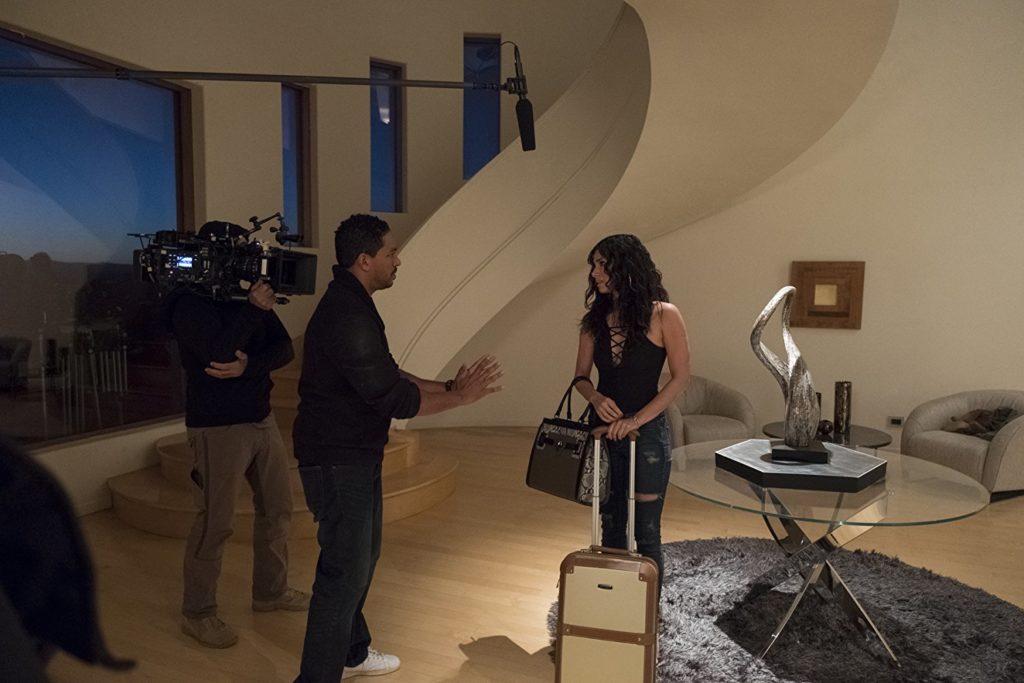
Yes, you did, and you weren’t even finished.
I screened it for you because I knew we were on to something and I was toying with the idea of the thriller and that. That was a critical moment for me in editing because I’m, okay, is it blending? Is it working?
You did exactly what I told you needed to do. You took out certain shots, you tightened it up. You added your score which … I mean, Geoff [Zanelli] has done an amazing job.
That’s exactly right. Yes. That’s right. Amazing job. [Geoff] is badass.
And the sound design! You’ve got overlay happening. Then when you got your color correction with what Dante [Spinotti] shot! Can you believe you have the cinematographer who is now finishing up “Ant Man and The Wasp”? A Marvel movie!
I know. It’s pretty incredible.
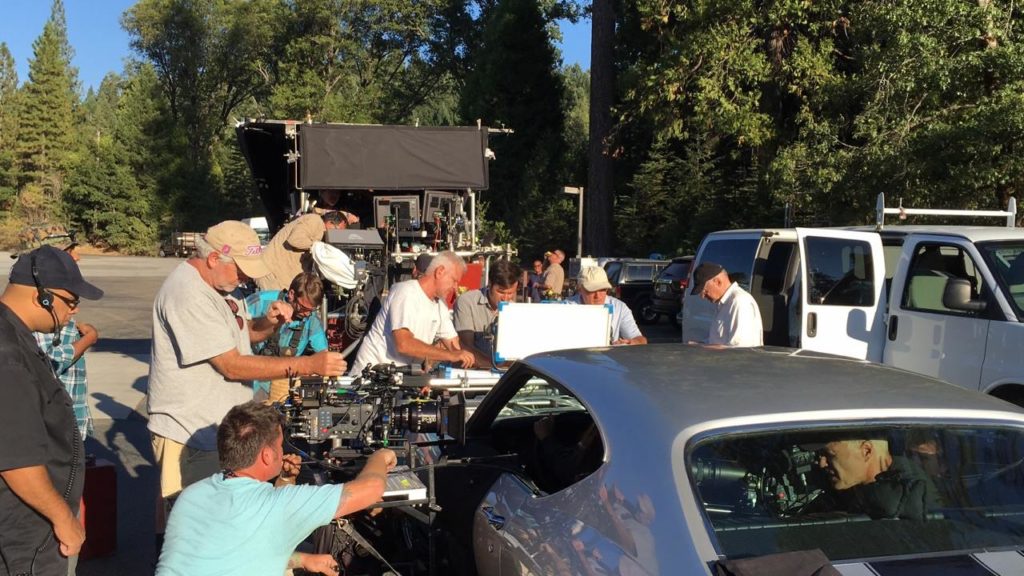
Years ago there was a great film called “Trade” with Kevin Klein.
Yes. I remember that. You talked to me about that movie. I watched that movie after I spoke to you.
But then in the past couple of years we’ve had the Smallbone Brothers who did “Priceless”. That was about bringing girls across the border.
I’ve seen that. Yes.
Then we just had, within the past five months, “Trafficked” with Ashley Judd. It’s quite good. They’re taking girls that are orphans and they’re in social services home. They’re put into a Catholic home and then it becomes, “Well, we have found a family with a job for you.” Ashley Judd’s character is the social worker who is allegedly placing the girls in these homes with jobs, when she is, in fact, transporting them and they are being trafficked. But you never have the thriller aspect like what you bring with TRAFFIK. You have layered it successfully. We have the thriller aspect. But you give us trafficking on two different levels. We have the obvious trafficking that Luke Goss’s character of Red is doing. But, then we also have a different kind of prison in trafficking through the character of Malia. Then you turn it into a noir film. When that doorbell rings at night, it becomes a film noir.
That’s right. That’s exactly right!
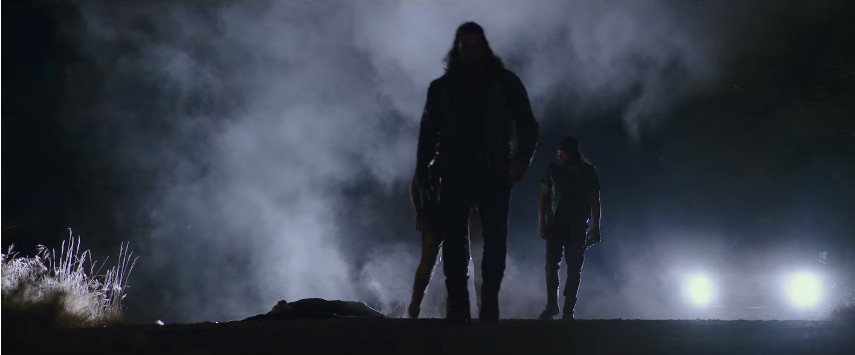
What you did with the color correction, it really bumped up the inky black of the night.
It heightens the whole energy.
It’s amazing! Then you layer in with the music, with “Strange Fruit”, which I think is just perfect.
I do to.
With Missi Pyle in the slo-mo coming down the hall. Just everything that you did was perfection. I was sitting there, my colleague Michael Sandoval was sitting next to me in the screening room the other night, and I was tearing up. He asked what was wrong. I just said, “I am so proud of Deon.”
Really. Thank you so much, Debbie. Seriously. You’re touching my heart right now. I appreciate that because I’ve been at this for 12 years independently, by myself. Just even today, this whole issue, growing and not stopping and not settling and seeing the movie touch a lot of people here has been really cool for me. I have no idea what a critic will say what-so-ever.
You knew what I was going to say.
But the energy that we’ve had over the last two weeks with people seeing it and responding, I was, Okay. I’m done. If it touched you that way, if you felt a certain way. I’ve had people say, “I sat in the theater for 15 minutes and watched every credit. Because that was not what I expected.” I think that’s what it is supposed to do. I think I figured out the combination of how you get what you got with “Supremacy”, but in a commercial way. I’m excited for the next one, but this one I’m really excited about. I feel like women should know about this. My community has no idea. People are looking at it. I’ve had some guys go, why did you use black people?
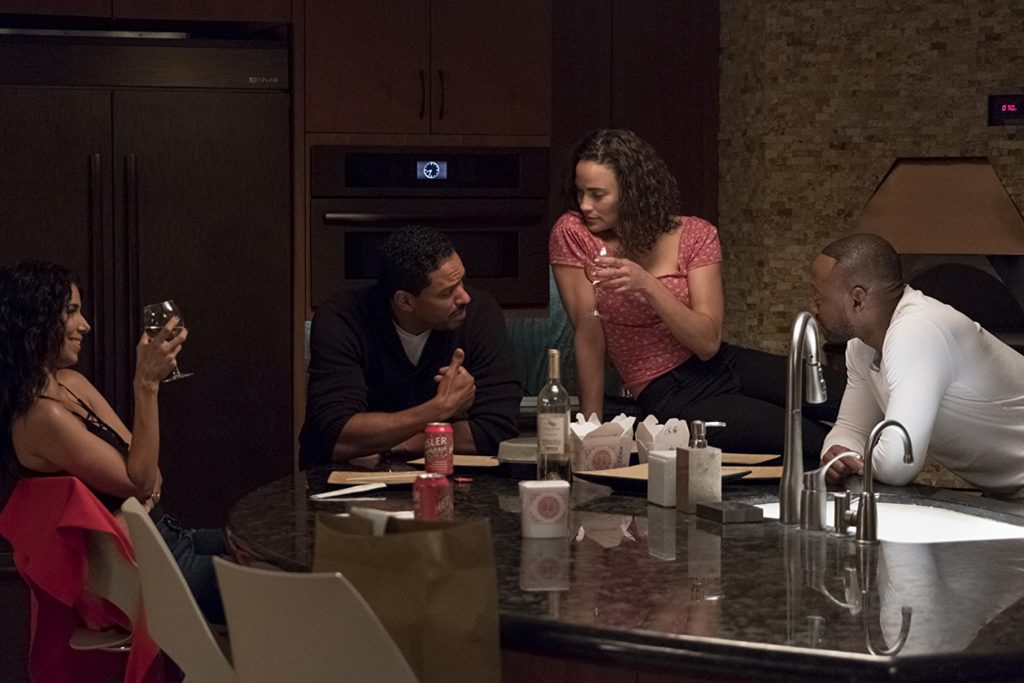
Even my community has no idea because they think it’s other countries.
That’s right! They think it’s somewhere else. No, this is right here. It’s funny because, I say every time I start talking about the movie, something pops up. I was just telling a guy earlier today. I said, “There was a truck in Texas, pulled over in front of a Wall Mart, 1:00 in the morning. The security went over there, banged on the door. The police came over, because they were questioning … You can’t be parked here. His cooler was running over, he couldn’t start the truck. They open up the back of the truck. There’s seven dead bodies and 30 girls.” This is four months ago. He was just driving and his thing messed up. It was like this exact thing I read and had been seeing that I wrote, and it was now national news. I said, “Okay. We’re on the right path.”
The “Strange Fruit” was interesting to me because as an African American man, that is a significant song for all blacks. That is, when you hear that, you have to understand why Nina Simone wrote and sang that song. Bodies swinging in the wind. Horrible song. When I finished cutting TRAFFIK, the first thing I thought of was, this song could be applied here. Because, this is slavery, it’s sexual slavery.
Kids are being taken and killed. I just told this group in the other room, I said, “We drive down the street in Atlanta, Oakland and you say, look at these girls out here prostituting. You have no idea that some of these girls have been taken from different cities. Their mom and dads are looking for them. You might have just drove by girls who’ve been missing for six months. There’s a dude who crossed the street who has drugged, beat her so bad, scared the hell out her … He’s trafficking her. Here she is, trying to do whatever it is to please this man because she thinks he’s going to” … It’s just horrific.
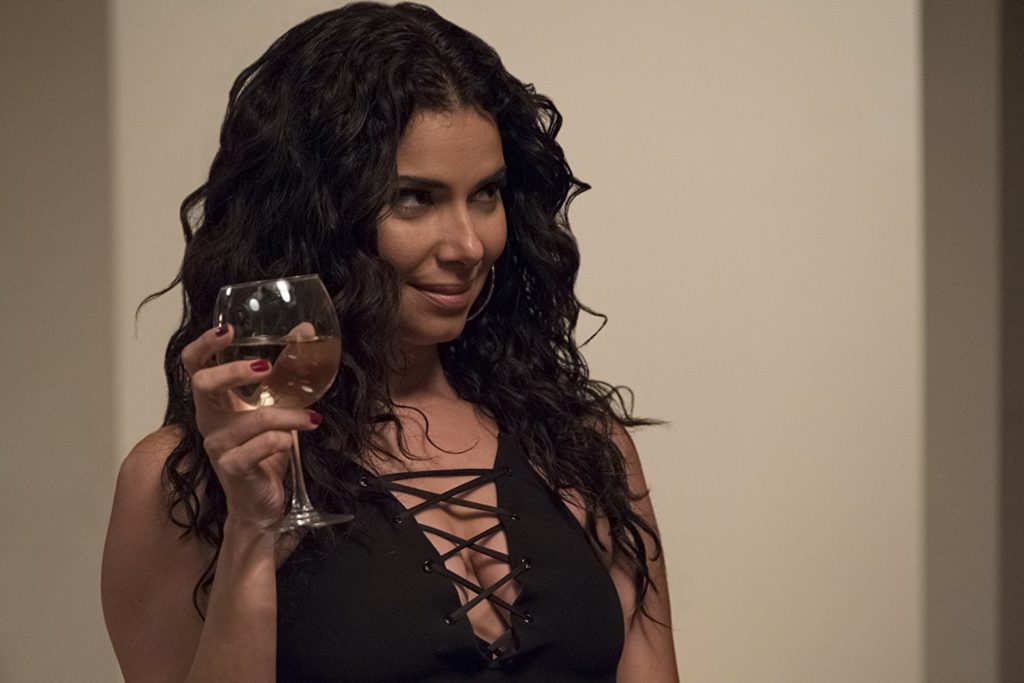
Which is where your tie in with the character Malia is perfect because she does everything she can to please Darren for the lifestyle.
She’s a kept woman. That’s exactly right.
You’re showing both extremes here. You’re showing both extremes. But I’ve got to ask about working with Dante Spinotti. You know how much I love the cinematography in “Supremacy’ and the use of color in the kitchen scene. Absolutely stunning. But this is totally cinematic. Purely cinematic, the visual tonal bandwidth is off the charts, Deon.
Yes. This is next level. I agree with you. And oh man, Dante! Let’s talk about him!
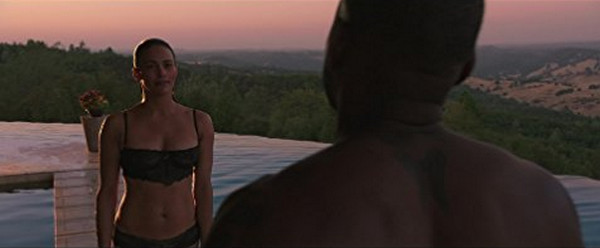
You’ve done nothing prior that looks like this with this cinematic quality. What was it like for you in developing this visual palette, because you have the two distinct palettes happening? I’m curious how you and Dante worked together to decide what kind of look you were going for with this polish but with the saturation, with the lighting differentials.
What’s interesting about your question is that I’ve talked to a lot of people and they felt like it was two different movies. I said, “No. It’s not. It’s what your body is doing in the film. It’s a testament to how great Dante is.” What happens is, which you tapped on earlier, when we first looked at the movie, we wanted to take you on a ride. We had one word in our vocabulary which was roller coaster. You’re going to go up and then you’re going to go down – fast. What me and him just explored was the vistas. Opening a movie with a lot of greens, a lot of big fat wide shots. Seeing this beautiful classic car rumble down the road. The restaurant is very Kubrik with the lamps. We wanted the vista at the house and the infinity pool. If you watch the film, everything opens – the movie’s wide. The minute that the doorbell rings, everything shrinks. That’s where people get that it feels like two different movies. It’s because it is something that is affecting them and I want the audience to go on a ride. That’s when it becomes noir. Now we’re lighting trees with car lights. We’re running by moonlight.
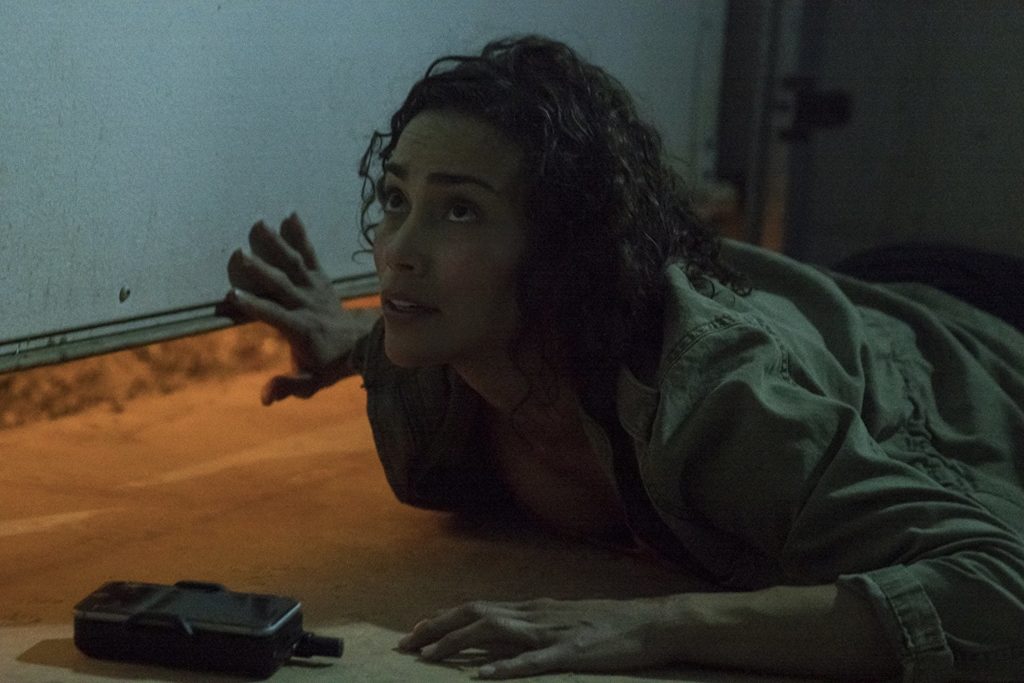
The headlights! It looked great last year. But now you got the color correction and everything, it is …
It’s epic.
It truly is. All you see is the shadow. Then we have a bullet to the head and you see the splatter. From a distance, but you see the splatter because of that backlighting and the headlight.
It’s shadowy. Yes. It’s incredible and Dante … It was a reason why he’s probably one of the best cinematographers of our time. 74 years old. When you think about what he’s done with Michael Mann, it’s amazing. But with this film what was really interesting for him and myself was, we had no rules. We were working on a movie together now, but he was very caring and open to me based on the fact that I was a fan. So, in other words, it was surprising to me to see that no one’s ever rooted for him. That this is just taken for granted. You get guys like this and they’re working with these gigantic directors who get all the attention. So, when he came to me, he was like, “Oooh whee! That shit was crazy! No one’s ever talked to me that way.” And I’m like, “You are killing it.”
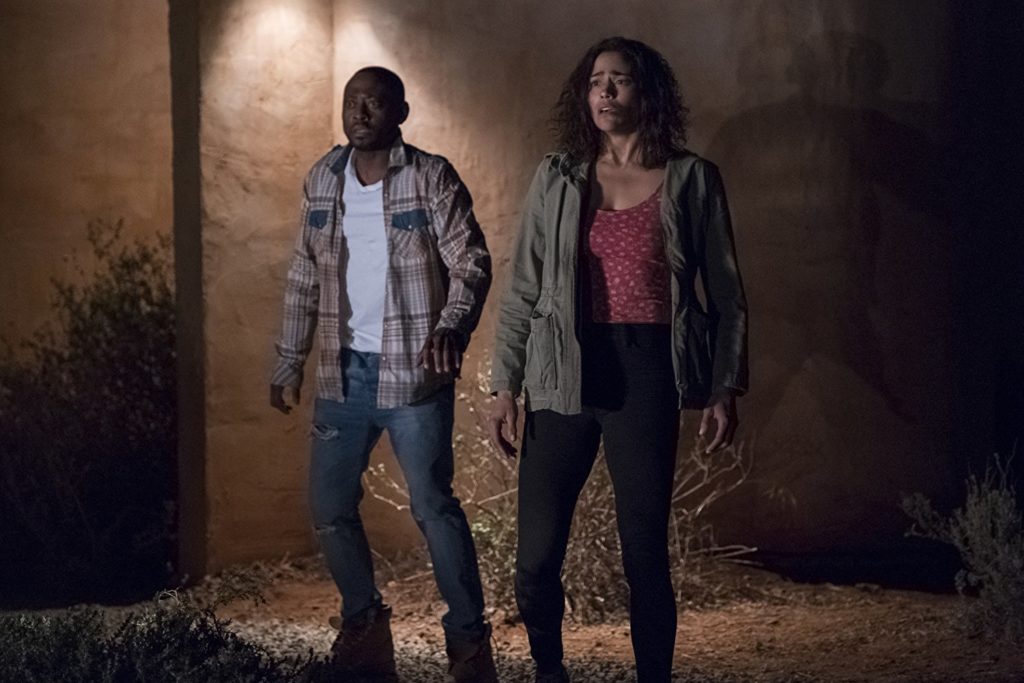
Cinematographer is your best friend.
But you understand what I’m saying? He was like an actor in terms of the level went up a notch because he was needed. We believed in him. If I was ever in a jam, I’m, “Do this shot right here.” He’s, “Maybe this.” It was a creative effort, it wasn’t like it’s this shot and that’s it. Watch out. It was like I would have something and he’d be, “Deon, what about this?” And I’m, “Man, that’s dope, do that.” That was what was really cool about us. It became a rhythm. It was a dance. Me and him started, I think day five, we were high fiving and I remember one of the camera guys, Paul Rosenfeld, came up to me and was like, “Deon, I’ve never seen Dante this excited.”
I’m, “Yes, he’s in rhythm.” It’s a weird thing energy is. It’s a weird thing what intention is, like when you have great intention. It doesn’t matter if you make mistakes if you have great intention, because you didn’t mean to do it. You’re just trying. I said, “Let’s not be scared to fail.” He was amazing! When we lit, when he lit that car, outside with them headlights and we had that dust in the air, we went to the monitor, went to the monitor because you set it up. then you walk away. We looked at each other. He said, “You motherfucker!!” It was incredible. Then I was able to suck the sound out in that moment. I said, “It’s so beautiful. We got to go dead. It has to just hold.” Because the movie just changed.
Paula [Patton] breathes, and the movie goes. And that’s it, time to go, I said. If you’re an independent filmmaker, if you’re someone that wants to get into movies, this is the perfect interview. Because it’s a collaborative effort. I think it’s now beginning to change. Even with me and your relationship, I listen to you. You’ve been doing this a long time and you gave me notes. And guess what? Not only did I take those notes, but I applied those notes. Because I know that you know what you’re talking about. You’re now part of the whole team. I think that’s how you get better as a filmmaker.
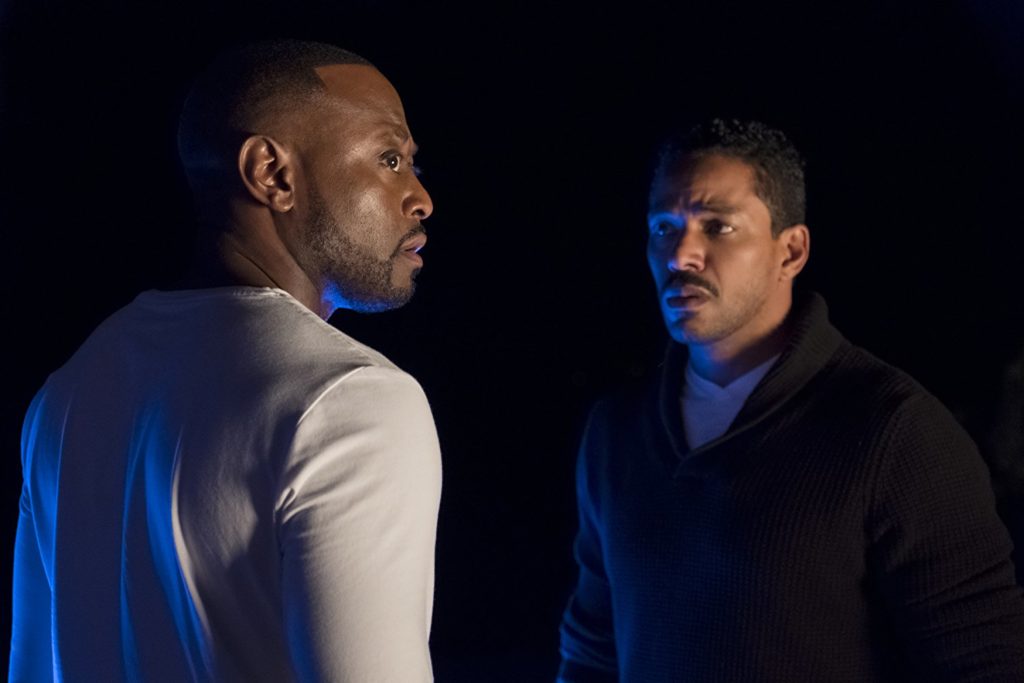
I’m looking ahead. It’s like anticipating where it’s going to fall short with people. And I don’t want Deon falling short with anybody.
I appreciate that. That’s right, because you’re going to have a completely different take. Especially when you live with something. You can get so close that you don’t know. So when I screened this movie for you a year ago, it was great because you were, “Hey, no. It needs this and I’m missing that.” Then I said, “This is great. Come over here listen to what she just said.” We take it because, if you think outside the box and you’re a creative person, you understand – listen, take notes, apply things. It’s organically how you do it. It’s not, this word says that and that’s all I’m going to do, I don’t care what you say. But those notes were incredible. Yes, thank you.
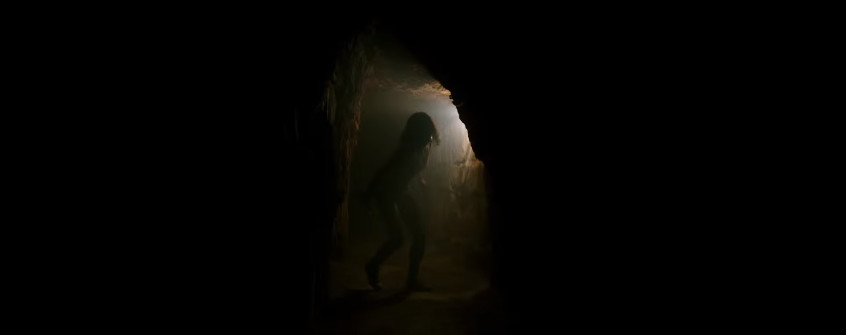
Something that you did that a lot of independent filmmakers shy away from, you shot night for night. How important was that for you as a director and to the picture as a whole doing night for night shooting as opposed to doing day for night?
It’s the hardest thing you do as a filmmaker. You have to turn your clock upside down. But cinematically, there’s nothing like it. In TRAFFIK, whenever we’re running through the forest, we’re really in there. As a matter of fact, we had a deer at three o’clock in the morning, run through our video village and knock everything over because he stumbled into the shoot.
You scared Bambi! Come on, Deon!
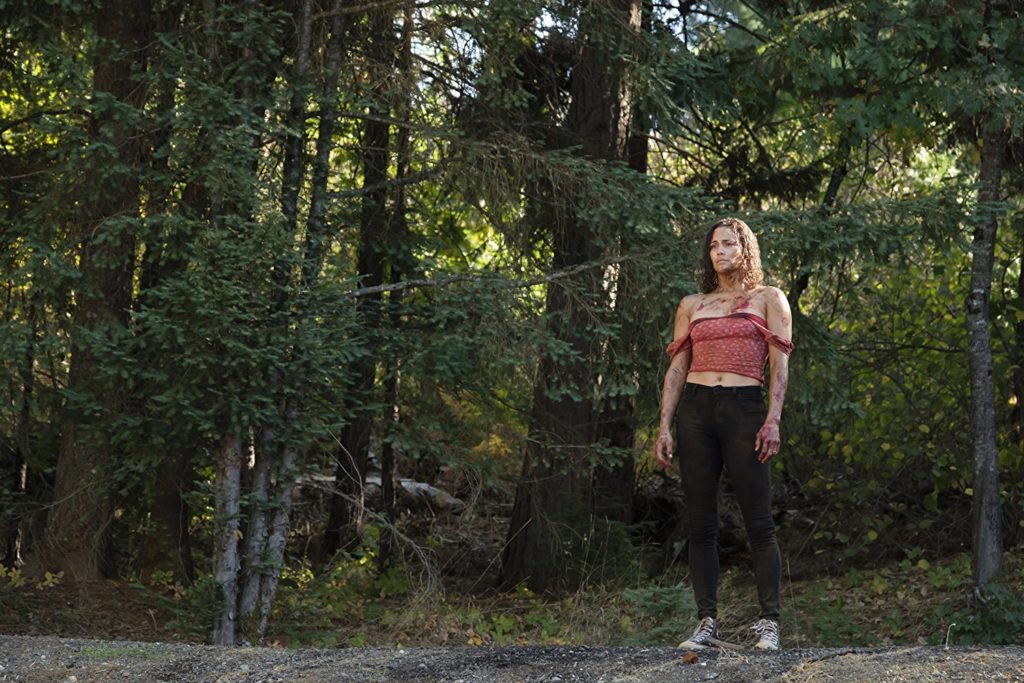
But it’s important. I think everything practical is important now. Especially now, we have so much … You’ve got “Black Panther”. You’ve got all this stuff going on now. I think we’re starting to get to a place to where people just want art again. They just want to see something that gravitates to them that’s humanity. That’s driven, that’s real, and something as simple as night for night. What happened to that? Now we’re on a stage. And it’s no. Let’s get out there in the elements. I want to see a bug fly through the screen and I think it also helps the acting. It was really interesting to see Omar [Epps] and Paula [Patton] at 2:30 in the morning in the middle of the night in a real forest because no matter if you’re tired or not and you say action, if they allow themselves to lose themselves, you’re actually in the real environment. That run to the next tree means something. That is really bark that you are up against and you really did trip in a hole and …
You really have blood on you from where you scraped your own knee.
It became that. They got banged up and scratched up and injured and slid down a hill and “my hip, my leg.” I’d say, “Go do it again.” Because now it’s real. You can’t fake that. The camera with all the HD and all these stuff, if you watch TRAFFIK it’s hyper-reality. You’re really there. Even the cabin scene, I watched that the other night and I’m, “Oh, man!”
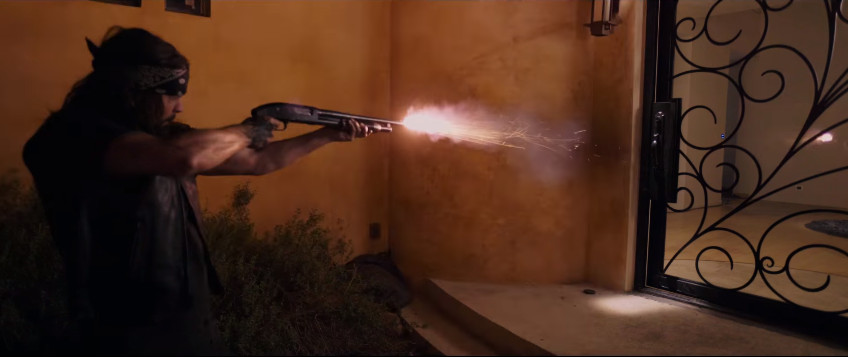
That’s Dick Ziker, isn’t it? I love Dick.
Yup, yup, yup! He came through that damn window and I’m like, “This is great!” The fight with Omar, the tables breaking.
I’ve got to ask you now, Deon, what did you learn? What did you personally learn about yourself making this film that you can now take forward into your next projects?
Trust me. That’s what I learned. Up until now I would only do my own thing, but I will always look for approval, “Hey, what did you think?” This movie was the first movie where I was, I learned to just trust me. It was interesting because there were few times where Dante would say, “Hey, what do you think about this, this, this?” I would say, “No. It was really thing about this.” Then he goes, “That was better.” Being able to have someone at that level say that’s a better idea than mine, it made me understand the zeitgeist in terms of who I am and what I’m doing and to know that I’m doing it right. It was more times than less that he would say, that’s a better idea. I’m elated. You put the camera over there and that’s when I knew, okay, D.
But we’ve been on the ground for a long time. I tell people all the time, with “Supremacy”, I’m shooting camera A, I’m on the ground, I’m helping light. Now, when you get to this you get to be with other great creative people and the piece gets better. Now it’s all collaborative. We know what we’re doing. We know where we’re supposed to be at and we know what we’re trying to get. It allowed me to work with Paula a lot more. This movie was really the one where I said, I’m going to trust me. Because at the end of the day, I’m the one taking the shot and I’m trying to tell a story and I just love that. . . . “Supremacy” was my step, where I was, I want to do this. This one was like, this is what to do. This movie to me was, “Deon, this is your wheelhouse.” I like planning this world. I like the thriller. I like the message. This is where I wanted to be. I think this movie graduated me if you will.
by debbie lynn elias, interview 04/14/2018












